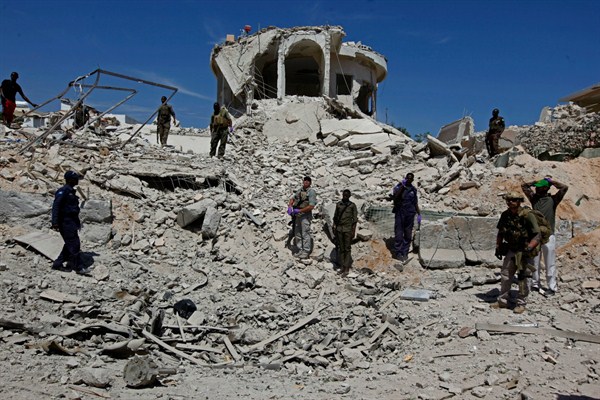The so-called Islamic State received some modest good news recently from Somalia, in what has otherwise been a dismal stretch of losses for the jihadi group. In October, a small militant faction aligned with the Islamic State took and held Qandala, a port town in northern Somalia, for more than a month before withdrawing. It was the first time a group linked to the Islamic State has occupied a town in Somalia.
Talk of the Islamic State dominated much of the debate on counterterrorism issues during the U.S. presidential campaign. Yet as concerning as the Islamic State’s Qandala operation is, President-elect Donald Trump should not be distracted from what remains the primary threat in Somalia. Al-Shabab, the terrorist group affiliated with al-Qaida that has been ensconced in Somalia for years, is far more dangerous than the Islamic State is likely to ever be in the country. The incoming Trump administration should commit to fighting it with determination.
Somalia is more than 8,000 miles from the United States, but it has rightfully been an American security concern for decades. The violence and instability there since the late-1980s have been a constant strain on the fragile East Africa region. That volatility has made Somalia a sanctuary for militants, including several al-Qaida members involved in the 1998 bombing of the U.S. Embassy in Nairobi, Kenya. Al-Shabab once had scores of foreign fighters in its ranks, including dozens of American citizens, leaving the U.S. vulnerable to all the risks associated with having citizens fighting with a committed and competent terrorist group. Despite a years-long regional campaign to wipe it out, al-Shabab remains a threat in Somalia and beyond, as it has been behind terrorist attacks in neighboring Kenya and Djibouti and nearby Uganda.

